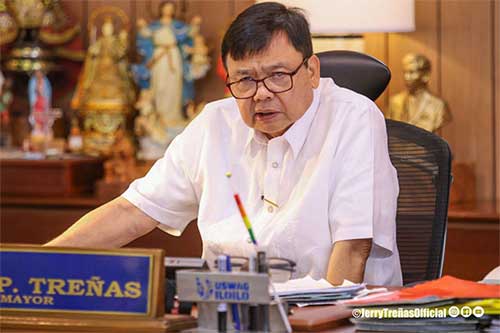By Artchil B. Fernandez
The Marcos administration’s stance towards the International Criminal Court (ICC) has shifted in tandem with its relationship with the Dutertes. The current administration is now taking a different approach regarding the ICC’s investigation into the previous administration’s bloody war on drugs.
When the UniTeam alliance was still intact, President Bongbong Marcos (BBM) firmly opposed the ICC’s investigation into former President Rodrigo Duterte’s drug war. During the presidential campaign and early in his presidency, BBM vowed not to cooperate with the ICC, barred its investigators from entering the country, and refused to rejoin the international tribunal.
However, as the UniTeam alliance unravels—marked by Sara Duterte’s departure from the Cabinet—the administration’s attitude towards the ICC investigation has also shifted. With the collapse of the UniTeam, officials of the Marcos administration are now modifying their previous stance on the ICC’s investigation of the drug war.
Last week, Solicitor General Menardo Guevarra stated that the government would not interfere with the ICC’s investigation into Duterte’s drug war. “[The Philippines] has no legal duty to lend any assistance to the ICC prosecutor in conducting his investigation. But the Philippine government cannot stop him from proceeding in any way he wants,” Guevarra told reporters. As Duterte’s former justice secretary, Guevarra had been a staunch opponent of the ICC’s actions. However, under BBM’s rule, he has softened his position, expressing openness to the ongoing ICC probe.
During Duterte’s administration and early in BBM’s presidency, Guevarra maintained that the ICC would not be allowed to conduct an investigation in the country. Now, Guevarra has stated that he will not prevent the ICC from conducting investigations, even without government assistance. He added that the ICC could interview “persons of interest” in the case through various means, such as in-person meetings, virtual sessions, email, or phone calls, as long as they consent. Recently, the ICC named five “persons of interest” in the case: Senator Ronald “Bato” dela Rosa and four past and current Philippine National Police officials—Oscar Albayalde, Romeo Caramat Jr., Eleazar Mata, and Edilberto Leonardo.
Department of Justice (DOJ) Secretary Jesus Crispin Remulla echoed Guevarra’s stance. Should the ICC seek the assistance of the International Criminal Police Organization (Interpol) to arrest suspects in the drug war, Remulla stated that the Philippine government would not interfere. “We are not in the business of blocking any movement at Interpol,” Remulla said when asked about the DOJ’s response if arrest warrants were issued.
Senator Bato dela Rosa expressed alarm over the shifting positions of BBM’s top officials. He criticized the change in their stance during a recent privilege speech. “While President Bongbong Marcos, as the chief architect of our foreign policy, has maintained his position of not joining and not recognizing the jurisdiction of the ICC, we were surprised by the recent pronouncements from Secretary of Justice Jesus Crispin Remulla and Solicitor General Menardo Guevarra,” Dela Rosa said.
“The pronouncements of these two executive officials are quite alarming. The Secretary of Justice is one of the President’s many alter egos, and the Solicitor General is the government’s lawyer. Are they challenging the policy set by the President?” Dela Rosa questioned.
It is not only the DOJ secretary and solicitor general who are experiencing a change of heart; even police and military officials are showing signs of shifting their positions. Surigao del Norte Representative Robert Ace Barbers, who chairs the House Committee on Dangerous Drugs, revealed that past and present police and military officials have sent feelers to his committee, expressing a willingness to testify about extrajudicial killings (EJKs) and other drug-related crimes. “Many have sent feelers to the quad committee, and these can be of help in our investigation,” Barbers disclosed.
The quad committee is a super-committee created by the House to investigate the interconnections between illegal activities in Philippine offshore gaming operators (POGO) hubs, the illegal drug trade, and alleged EJKs in Duterte’s drug war. Both Duterte and Senator Bato dela Rosa are key “resource persons” in the quad committee inquiry.
These developments indicate a calculated recalibration of the Marcos administration’s strategy and response to the Dutertes’ actions. Recently, the Dutertes have actively attempted to discredit the Marcoses. A deep-fake video of BBM using drugs, released by a pro-Duterte group, was followed by Sara Duterte’s first public criticism of the current administration. Inday Sara criticized the administration’s handling of the recent large-scale floods that hit Metro Manila and surrounding provinces.
The ICC issue is a potent weapon for the Marcoses against the Dutertes. With the Dutertes now openly attacking the current administration, the Marcoses are reminding them that they could be sacrificed at any moment. While BBM remains cautious in publicly stating his position on the ICC investigation, he allows his subordinates to signal what he might do if the situation worsens.
Is the current administration genuinely committed to delivering justice for the thousands of Filipinos killed in the drug war? If the UniTeam alliance were still intact, would the administration’s stance on the ICC probe have changed? It is unfortunate and tragic that justice is subjected to the whims of politics and manipulated to serve political ends.
It is clear that the dramatic U-turn of the current administration on the ICC’s investigation of Duterte’s drug war is a calculated move to throw a political opponent off balance. Justice is not even part of the calculus.

























